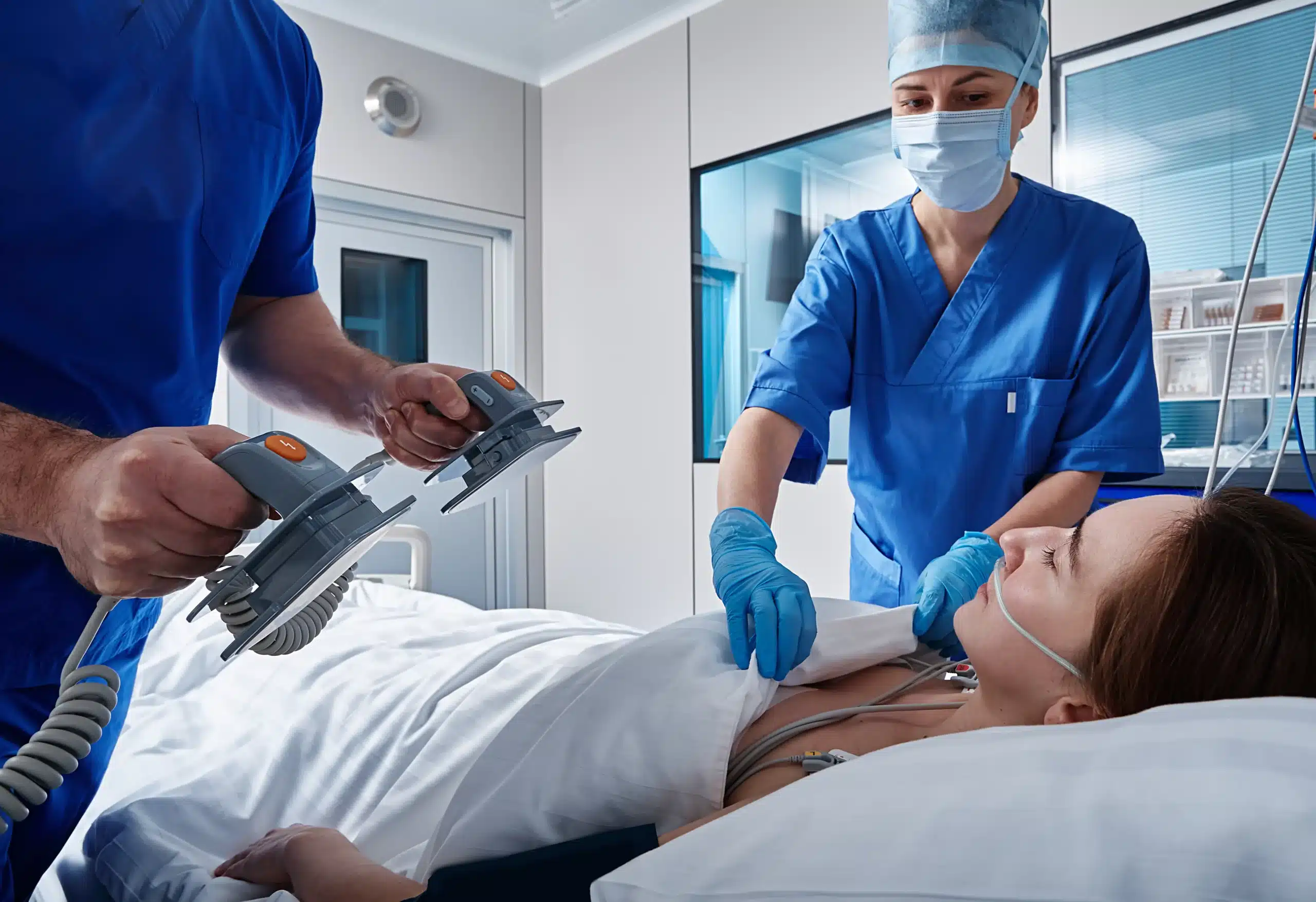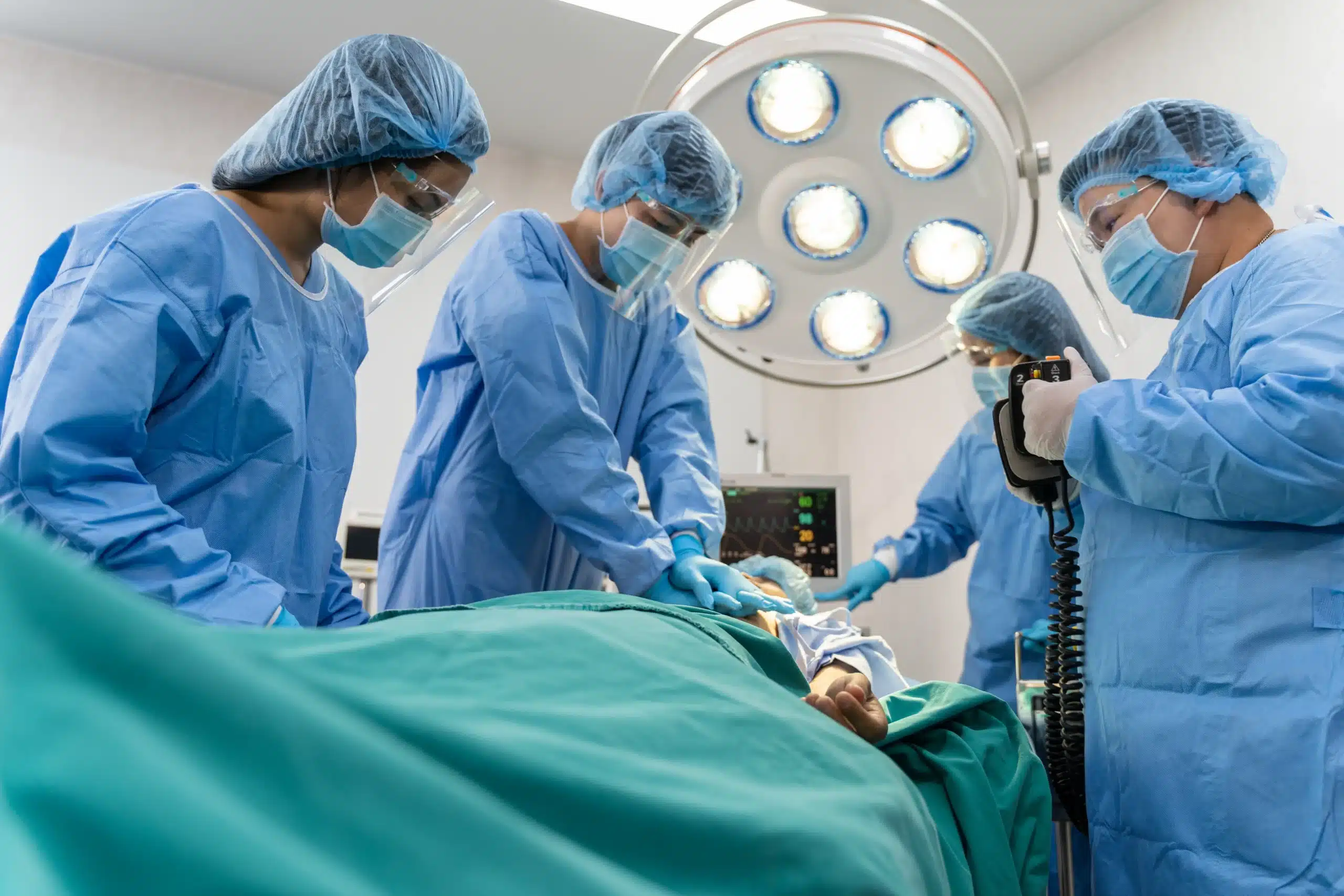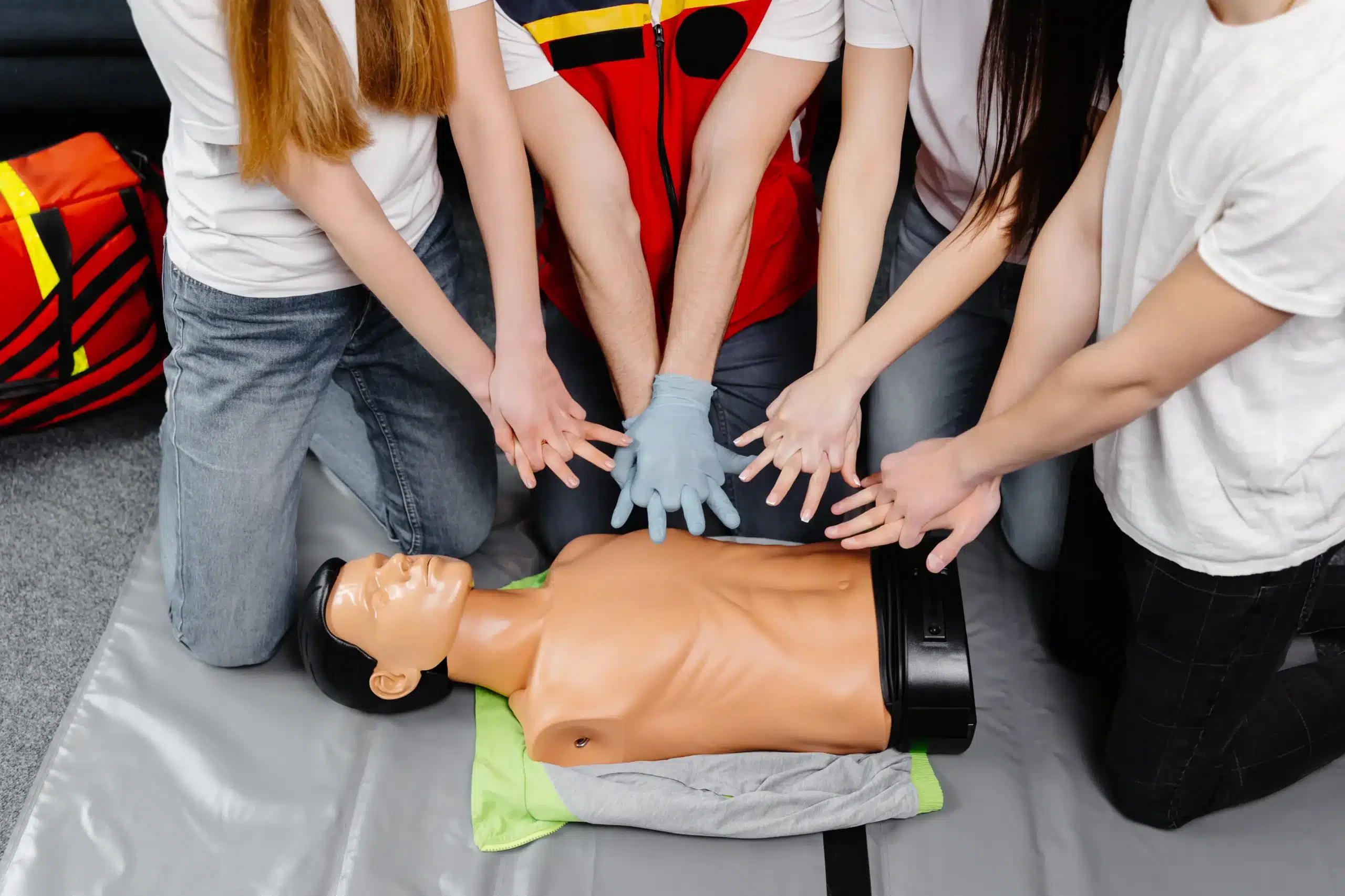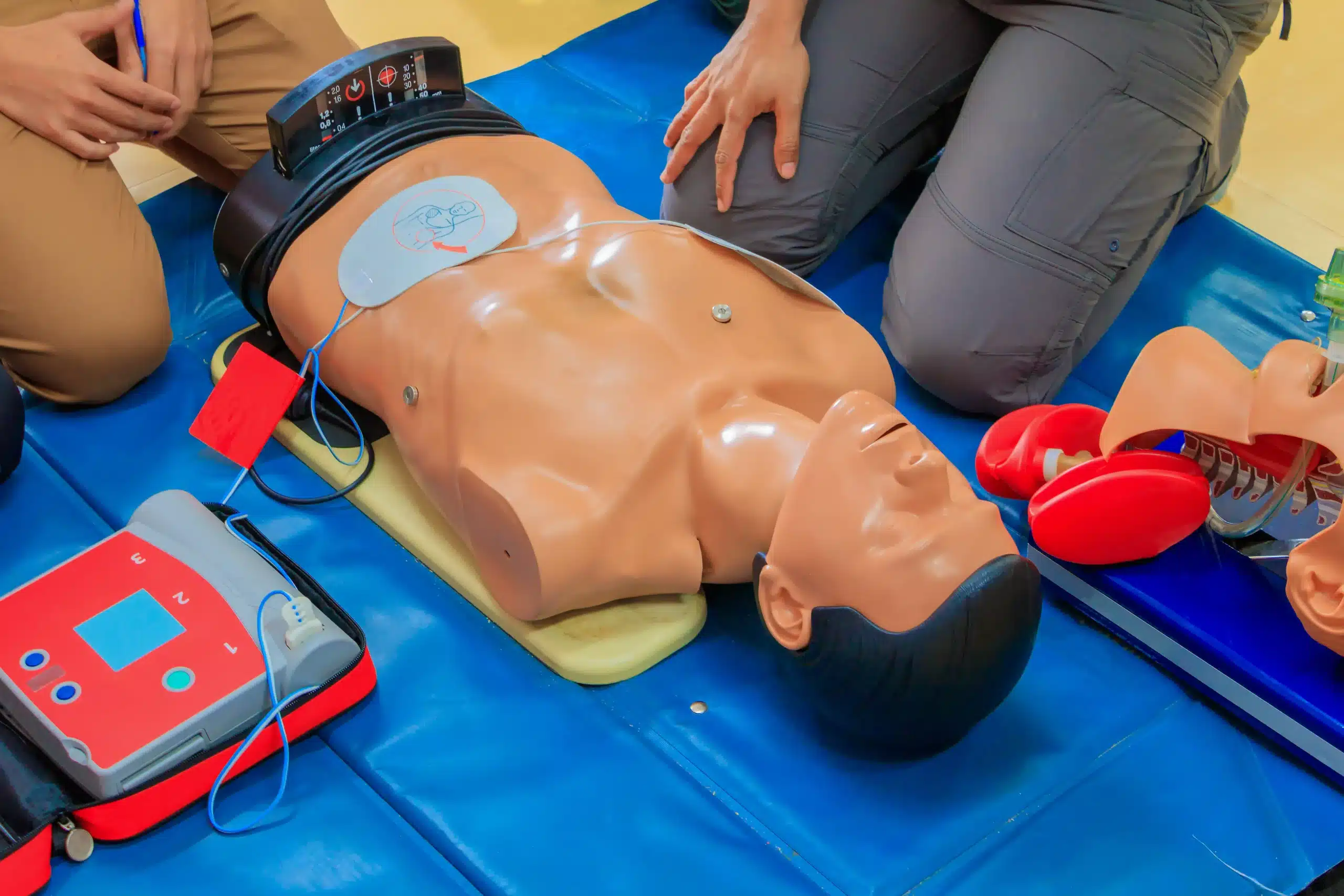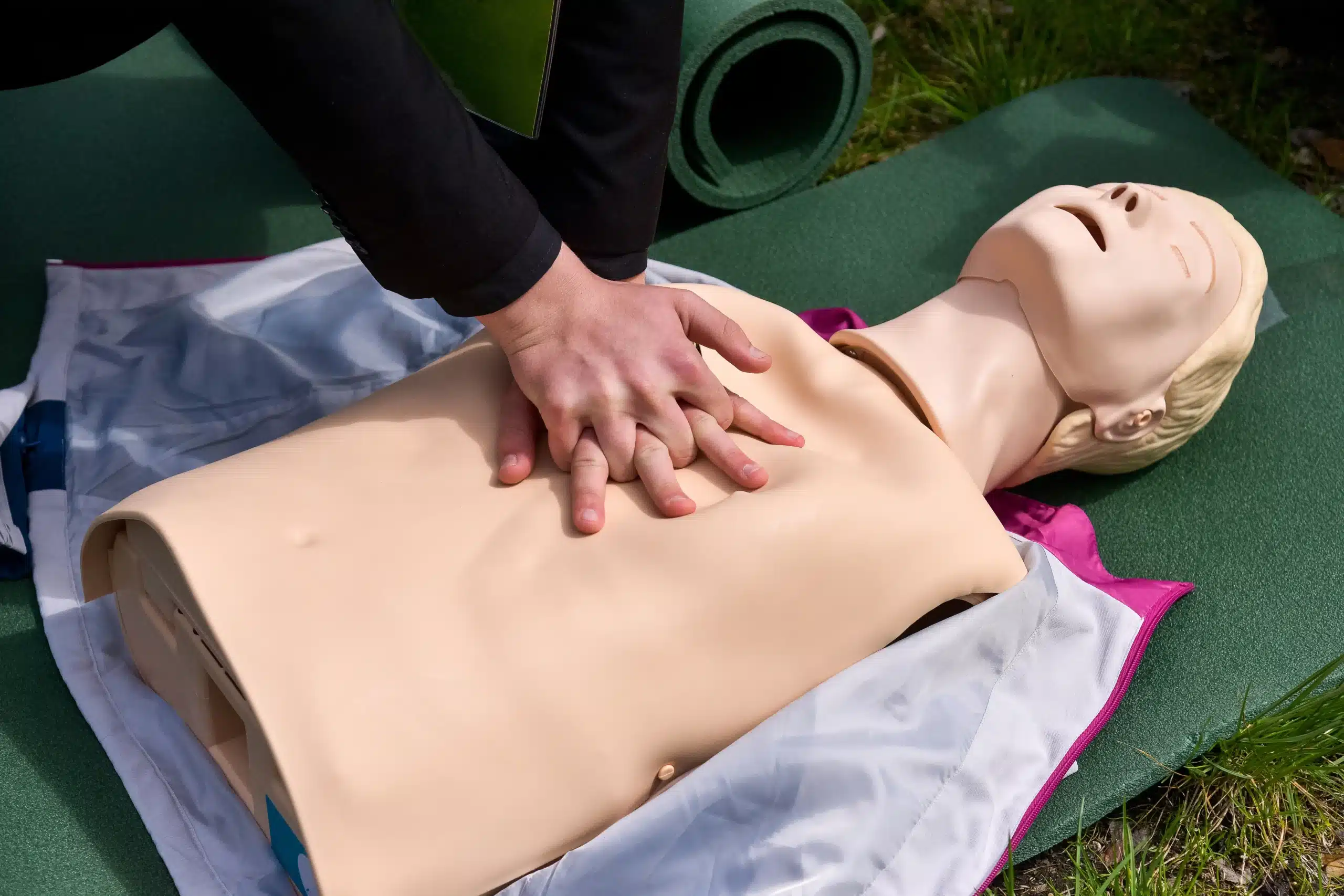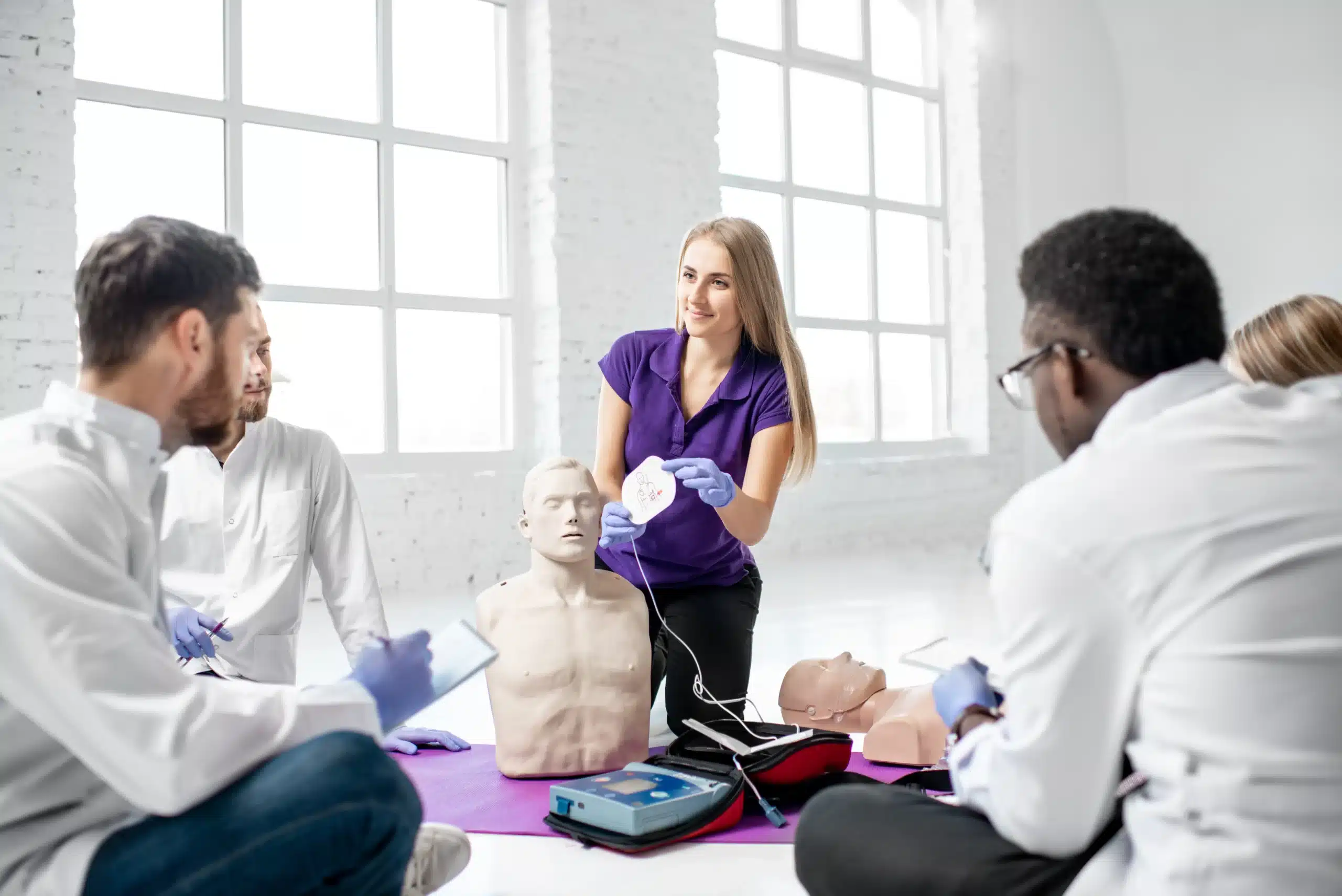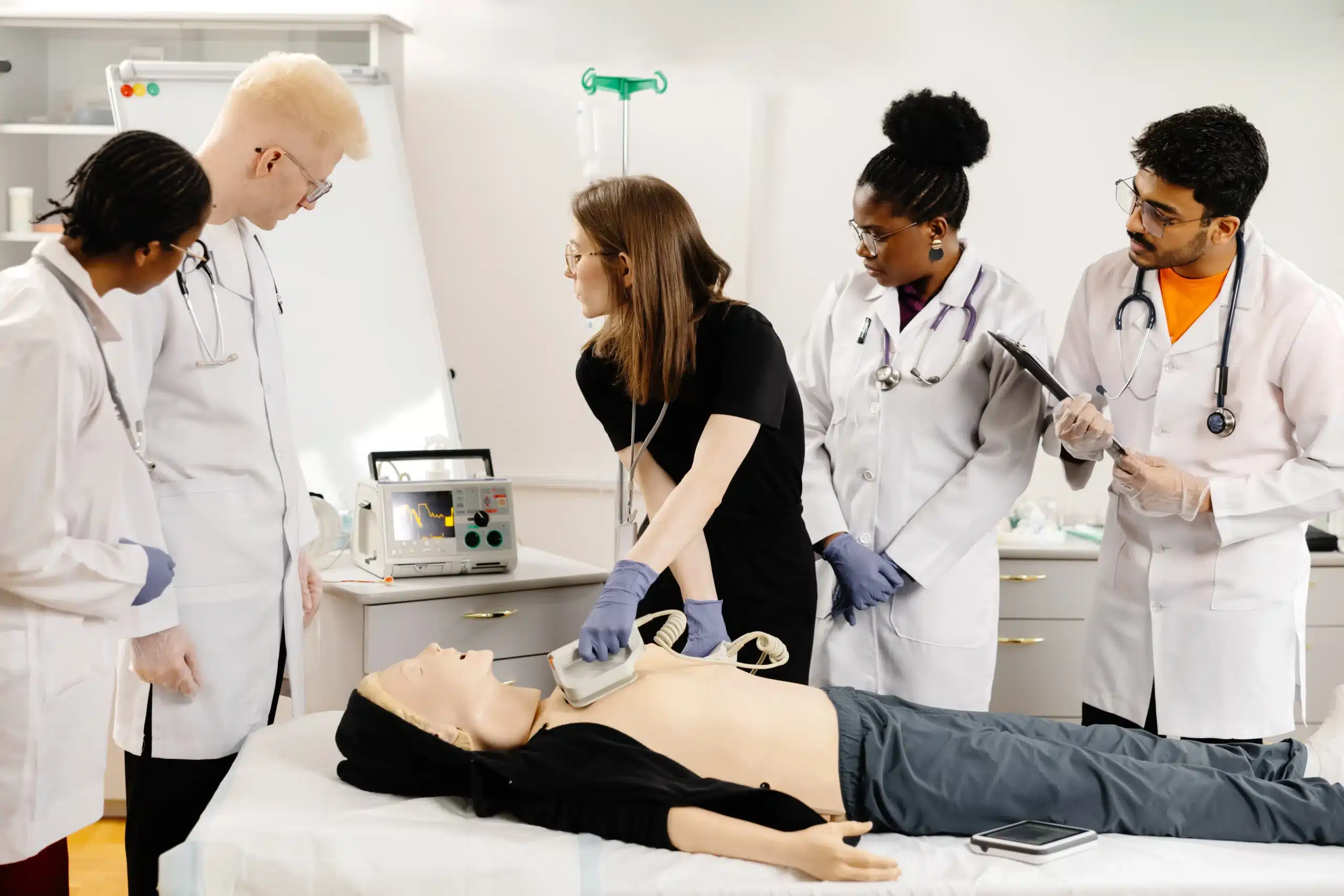Learning CPR can quite literally change the course of someone’s life. It empowers you to respond effectively during medical emergencies, potentially saving a life. But with so many options available, finding the right CPR courses in Roseville can feel overwhelming. This guide breaks down everything you need to know, from the basics of CPR to different certification levels, course formats, costs, and how to choose the right class for your needs. We’ll also explore reputable providers in the Roseville area, including Elk Grove CPR Classes, known for its comprehensive training and commitment to affordability. Whether you’re a healthcare professional, a concerned parent, or simply someone who wants to be prepared, this guide will help you find the perfect CPR course to meet your goals.
Key Takeaways
- CPR skills are essential for everyone: Whether you’re a healthcare professional, a parent, or simply someone who wants to be prepared, learning CPR can empower you to make a real difference in a critical situation.
- Find the right CPR course for your needs: Explore various options, including BLS, ACLS, PALS, and First Aid, to find a course that aligns with your personal or professional goals. Consider factors like course format, location, and cost.
- Stay current with your training: CPR certification typically lasts two years, but regular practice and refresher courses are essential for maintaining your skills and confidence. Explore options like RQI for streamlined renewal.
What is CPR and Why Does it Matter?
CPR (Cardiopulmonary Resuscitation) is a life-saving technique used in emergencies when someone’s breathing or heartbeat has stopped. It can literally double or triple a person’s chance of survival after cardiac arrest. Think about that—your actions could be the difference between life and death. Learning CPR isn’t just about gaining a skill; it’s about empowering yourself to make a real difference in a critical situation. With over 500,000 cardiac arrests happening yearly in the US, knowing CPR can have a profound impact.
CPR Courses: What’s Available?
Several organizations and training centers offer various CPR courses in and around Roseville. Elk Grove CPR Classes, for example, provides a comprehensive range of options, including BLS, ACLS, and PALS, in addition to standard CPR and First Aid certification. They are affiliated with Safety Training Seminars, an American Heart Association Training Center, ensuring high-quality instruction. You can also explore options through the American Red Cross and other local providers like NorCal Emergency Medical Training. Each organization may offer slightly different course packages, so doing a little research to find the best fit for your needs is worthwhile. Elk Grove CPR Classes offers convenient online course prep materials to help you get ready for your in-person skills test.
CPR Training Myths Debunked
One common misconception is that online-only CPR certifications are enough. While convenient, these certifications often don’t meet requirements for many employers, especially those regulated by OSHA. Effective CPR training involves hands-on practice and feedback from a certified instructor. This in-person component is crucial for mastering the necessary skills and building the confidence to perform CPR effectively in a real emergency. Even if your job doesn’t require CPR certification, the value of proper training is undeniable. It equips you with the skills and confidence to respond effectively, potentially saving a life.
Find a CPR Course in Roseville
Finding the right CPR class can feel overwhelming with so many options. This section breaks down some of the providers offering CPR certification in and around Roseville, making it easier to find the best fit for you.
Elk Grove CPR Classes
Elk Grove CPR Classes offers a convenient option for those seeking CPR certification near Roseville. They provide a range of American Heart Association (AHA) courses, including BLS, ACLS, PALS, and First Aid. With a focus on customer service and affordability, they offer various course formats, including in-person and online options, to accommodate different learning styles and schedules. Check their website for course schedules, pricing, and more information on their low price guarantee. They also offer group discounts, making it a cost-effective choice for workplaces or groups of friends. Be sure to review their course prep materials before your class.
American Heart Association
While the AHA doesn’t directly teach courses, they set the standards for CPR training. You can use the AHA website to locate certified training centers in Roseville offering AHA-approved courses. This ensures you receive high-quality instruction aligned with the latest guidelines.
American Red Cross
The American Red Cross is another well-known provider of CPR and first aid training. They offer various courses, including online, blended learning, and in-person options. You can find Red Cross CPR classes in Roseville through their website. Their courses cover adult, child, and infant CPR, as well as AED training.
NorCal Emergency Medical Training
NorCal Emergency Medical Training provides AHA-authorized courses in the Sacramento area, including Roseville. They offer a variety of courses, from basic CPR to more advanced certifications. Visit their website for course schedules and locations.
Safety Training Seminars
Safety Training Seminars offers a comprehensive selection of CPR and first aid courses in Roseville. They provide training for individuals and groups, covering various certifications, including BLS, ACLS, and PALS. Explore their course offerings to find a class that fits your needs. They often partner with local businesses and organizations to provide on-site training.
Compare CPR Course Options
Choosing the right CPR course depends on your specific needs and goals. Let’s break down some common options so you can find the best fit.
Basic Life Support (BLS)
BLS provides the foundation for anyone in healthcare and other professions requiring CPR knowledge. It covers single-rescuer and team-based CPR for adults, children, and infants, along with AED use and relief of choking. This BLS certification is a good starting point and is often a prerequisite for more advanced courses. It’s essential for healthcare providers, including doctors, nurses, paramedics, and other medical professionals. Elk Grove CPR Classes offers comprehensive BLS training that meets the latest American Heart Association guidelines.
Advanced Cardiovascular Life Support (ACLS)
ACLS builds on the skills learned in BLS, focusing on advanced life-saving techniques for adults. This course covers a broader range of cardiovascular emergencies, including stroke and acute coronary syndromes. It emphasizes team dynamics, effective communication, and high-performance resuscitation. ACLS certification is crucial for healthcare professionals who lead or participate in resuscitation teams. Check out Elk Grove CPR Classes for more information on ACLS course offerings.
Pediatric Advanced Life Support (PALS)
PALS is designed for healthcare providers who treat infants and children. The course covers pediatric assessment, resuscitation, and stabilization, with an emphasis on team-based resuscitation and effective communication. It provides the knowledge and skills to manage respiratory emergencies, shock, and cardiac arrest in young patients. For those specializing in pediatric care, PALS certification is highly recommended.
First Aid/CPR Combo Courses
Combining First Aid and CPR training offers practical emergency preparedness. These courses teach you how to respond to various medical emergencies, from minor injuries to life-threatening situations. You’ll learn essential skills like wound care, bleeding control, and recognizing the signs of a heart attack or stroke, in addition to CPR techniques. This combination is valuable for anyone, especially those working in childcare, education, or other community settings. Group discounts are often available for these combined courses, making them a cost-effective option. It’s also a smart choice for parents, grandparents, and anyone who wants to be prepared.
Course Formats & How Long They Take
Finding the right CPR course often depends on your schedule and learning style. Thankfully, several formats are available, so you can choose what works for you. Let’s explore the most common options: in-person, online, and blended learning.
In-Person Training
In-person CPR training offers hands-on learning and direct interaction with an instructor. This format is great for people who thrive in a traditional classroom setting and value the opportunity to ask questions and practice skills in real-time. In-person training typically leads to a two-year certification that meets workplace standards, like those set by OSHA. This is essential for anyone who needs a certification recognized in professional settings.
Online Courses + Skills Tests
If you have a busy schedule, online courses offer flexibility. Elk Grove CPR Classes offers a variety of online courses, including BLS, ACLS, PALS, CPR, and First Aid. You can complete the coursework at your own pace and then schedule an in-person skills test to demonstrate your competency. This hybrid approach combines online learning convenience with essential hands-on practice.
Blended Learning
Blended learning combines the best of both worlds. Programs like RQI, offered through providers such as Roseville CPR Classes and Safety Training Seminars, allow you to complete some coursework online and then attend an in-person skills session. This format is particularly helpful for healthcare professionals renewing their BLS, ACLS, and PALS certifications, offering a streamlined and efficient way to stay current.
Typical Course Lengths
How long a CPR course takes depends on the certification you’re pursuing. Basic CPR courses for the general public usually take about three hours. Professional-level CPR courses for healthcare providers can run four to five hours. More advanced certifications, like BLS, ACLS, and PALS, can require up to 16 hours of training, sometimes spread over several days to cover the material thoroughly.
Costs, Discounts & Registration
Knowing the price range for CPR certification and how to find discounts helps you budget effectively. Let’s break down typical costs, explore potential savings, and simplify the registration process.
Course Costs
CPR and AED training typically costs around $35 per person for a two-hour course. For groups of eight or more, the cost averages around $280. Elk Grove CPR Classes offers a low price guarantee, making it a practical investment for organizations prioritizing employee training.
Group Discounts & Deals
Many CPR training providers offer discounts for group training. Elk Grove CPR Classes specializes in affordable group training, making it cost-effective to train your whole team and significantly reducing the per-person cost.
Low Price Guarantees
Look for training centers with a low price guarantee. This ensures quality training without overspending. Elk Grove CPR Classes offers this guarantee, demonstrating their commitment to accessible training.
Register for a Course
Registering for a CPR course is easy. Many providers, including Elk Grove CPR Classes, offer convenient online registration. This lets you browse course dates, choose a convenient time, and often complete any paperwork in advance. Prepare for your course by reviewing the course preparation materials.
Get Certified & Stay Certified
CPR certification is a critical skill, but it’s not a one-and-done deal. Staying current with your training ensures you’re always prepared to respond effectively in an emergency. This section covers how long CPR certifications last, how to renew them, and ways to keep your skills sharp.
Certification: How Long is it Good For?
CPR certifications are typically valid for two years. However, some employers or licensing boards may require annual renewal. It’s essential to check the specific requirements for your workplace or profession to maintain compliance. For example, healthcare providers often adhere to stricter guidelines for certification renewal than other professions. Knowing these requirements helps you stay prepared and avoid any gaps in your certification.
Renew Your Certification
Even if your certification is valid for two years, regular refreshers are key. The Red Cross recommends brushing up on your CPR skills every 6-12 months, regardless of your certification expiration date. Regular practice helps maintain muscle memory and keeps the steps fresh in your mind. This consistent reinforcement builds confidence and ensures you can perform CPR effectively under pressure. Elk Grove CPR Classes offers various refresher courses to help you stay up-to-date.
Resuscitation Quality Improvement (RQI)
For healthcare professionals, the Resuscitation Quality Improvement (RQI) program offers a flexible and convenient way to renew BLS, ACLS, and PALS certifications. RQI uses low-dose, high-frequency training to improve resuscitation skills and knowledge retention. This approach helps maintain competency and ensures healthcare providers are always ready to deliver high-quality patient care. You can find more information on RQI programs through providers like Roseville CPR Classes and Safety Training Seminars.
Pick the Right CPR Course
Choosing the right CPR course can feel overwhelming with so many options. But by focusing on your specific needs and doing a little research, you can find the perfect fit. Here’s what to consider:
What are Your Needs & Goals?
Think about why you’re taking a CPR course. Are you required to have certification for your job, or are you learning CPR for personal knowledge? Do you need a basic course or more advanced training? CPR skills empower you in emergencies, so find a course that fits your needs and builds your confidence. Consider factors like your location and schedule. If you’re in Roseville, check out some of the CPR courses available in the area. We offer a low price guarantee to ensure you’re getting the best value.
Certification Requirements by Profession
Different professions have different certification requirements. Healthcare providers, for example, typically need a more comprehensive certification like BLS (Basic Life Support), ACLS (Advanced Cardiovascular Life Support), or PALS (Pediatric Advanced Life Support). Make sure the course you choose meets the standards of your workplace. Many CPR training providers, including Elk Grove CPR Classes, offer same-day certification cards upon successfully completing the course and skills check. Review our course prep materials to prepare. We also offer discounts for group classes, which can be a great option for workplaces.
Check Provider Rep & Instructor Qualifications
Look for a reputable training center with experienced, certified instructors. AHA-certified training, like that offered through providers like Roseville CPR Classes (in partnership with Safety Training Seminars), ensures high-quality instruction and widely recognized certification. Reading online reviews and checking a provider’s history can give you a good sense of their reputation.
Hands-on Training & Feedback Devices: Why They Matter
High-quality CPR training involves plenty of hands-on practice. Feedback devices used with CPR mannequins provide real-time feedback on your technique, helping you learn proper compressions and improve muscle memory. Studies show that this type of training leads to better CPR performance and skill retention. Research indicates that students learning with these mannequins are often more engaged and motivated to achieve the best results. Ask potential providers about their use of feedback devices in their training.
Related Articles
- Discover Why CPR is Crucial in Healthcare Safety
- CPR Training in Sacramento: Your Guide – Elk Grove CPR Classes
- Debunking Common CPR Myths and Saving Lives
- CPR Certification in Elk Grove: Your Complete Guide – Elk Grove CPR Classes
- CPR Renewal in Elk Grove: Find Classes & Costs – Elk Grove CPR Classes
Frequently Asked Questions
What’s the difference between CPR, BLS, and ACLS? CPR (Cardiopulmonary Resuscitation) is the core life-saving technique used when someone’s heart stops. BLS (Basic Life Support) builds upon CPR, adding essential skills like using an AED and clearing airways. It’s the standard for healthcare providers and other professionals. ACLS (Advanced Cardiovascular Life Support) is even more advanced, focusing on team-based resuscitation and complex cardiovascular emergencies. It’s designed for medical professionals who lead or participate in emergency response teams.
How do I choose the right CPR class for me? Consider your personal or professional needs. If you need certification for work, ensure the course meets your employer’s requirements. If you’re learning for personal knowledge, a basic CPR and First Aid course might be sufficient. Think about your learning style and schedule. In-person classes offer hands-on learning, while online options provide flexibility. Blended learning combines both approaches.
Are online-only CPR certifications accepted? While online courses offer convenience, they often don’t meet requirements for many workplaces, especially those regulated by OSHA. Hands-on skills practice and evaluation by a certified instructor are crucial for effective CPR training. Many employers and licensing boards require in-person training.
How much does CPR certification cost, and are discounts available? Costs vary depending on the course and provider. Basic CPR classes typically range from $75 to $100. More advanced certifications like BLS, ACLS, and PALS are more expensive. Many providers offer discounts for groups, making it a cost-effective option for workplaces or families. Look for providers with a low-price guarantee to ensure you’re getting a good deal.
How long is CPR certification valid, and how do I renew it? Most CPR certifications are valid for two years. Check with your employer or licensing board for specific requirements, as some may require annual renewal. Even if your certification is valid for two years, regular refreshers are recommended to keep your skills sharp. Many providers offer renewal courses, and programs like RQI provide a streamlined renewal process for healthcare professionals.
